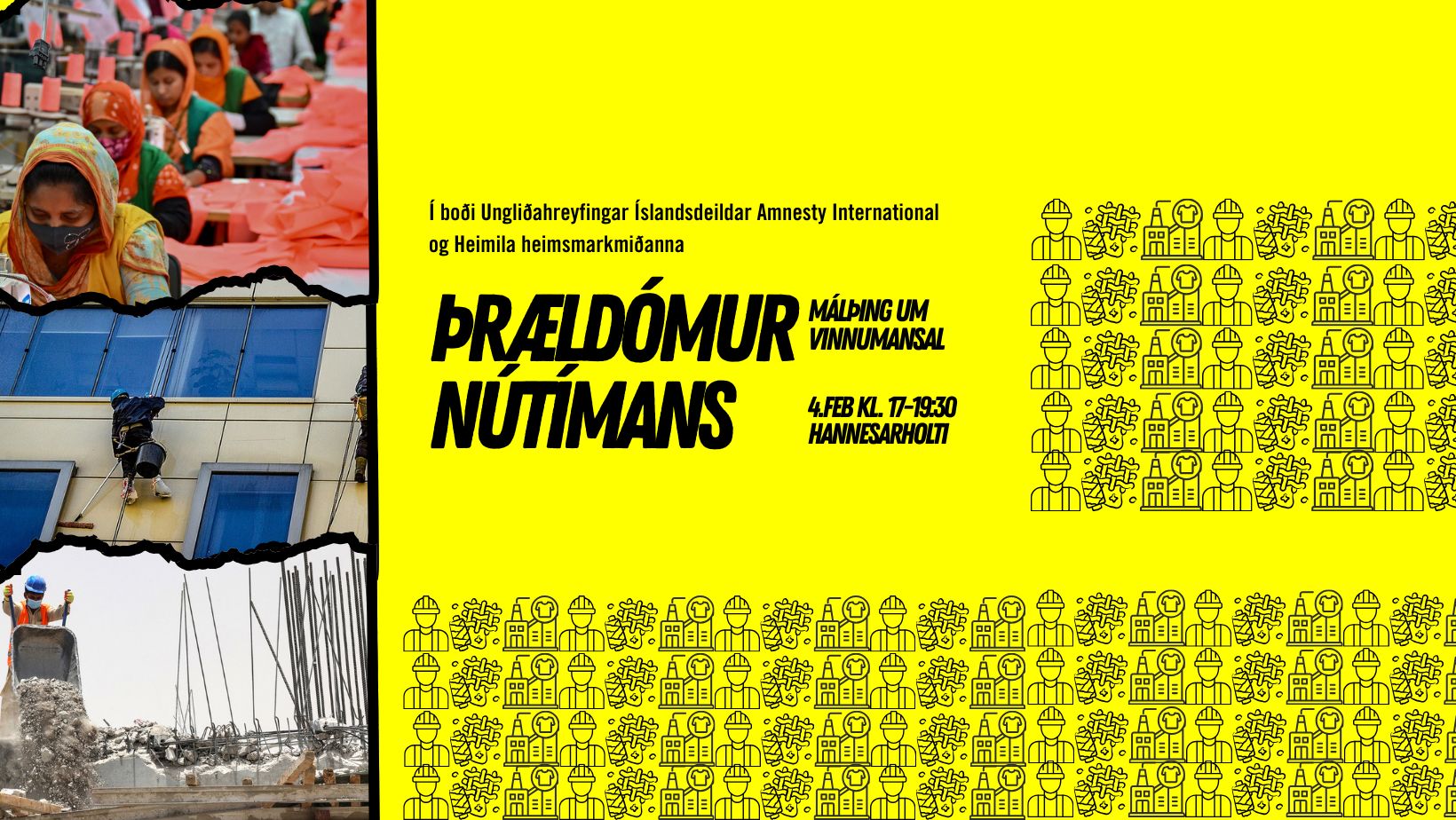Stéttarfélögum víðsvegar um land bárust þær fregnir á haustmánuðum 2024 að fyrirtækið Dagar hf., sem hefur tæplega helmingshlutdeild á ræstingamarkaði, væri tekið að lækka laun starfsfólks síns um 20%. Á næstu misserum bárust fréttir um að fleiri fyrirtæki hefðu og eru að leika sama leik. Upp hófst mikil og löngu tímabær umfjöllun um störf og kjör ræstingafólks. En hverjar eru staðreyndir málsins? Hvað snýst þetta allt um?
Kjarasamningsgerð – umsamdar hækkanir
Við gerð kjarasamninga í fyrra ríkti um það einhugur hjá Starfsgreinasambandi Íslands, Eflingu og Samtökum atvinnulífsins að bæta sérstaklega launakjör ræstingafólks. Ákveðið var að sá hópur fengi aukna hækkun um tvo launaflokka, auk mánaðarlegs ræstingaauka, 19.500 kr. eða hækkun sem nam 11,9% að lokinni gildistöku ræstingaauka 1. ágúst sl. Þannig var samið um að hækka þáverandi laun sérstaklega, enda samhljómur um að gera þyrfti betur fyrir þennan hóp, sem sinnir gífurlega erfiðu grunnstarfi í þágu samfélagsins. Án ræstingafólks verður ekki haldið opnum heilbrigðisstofnunum, umönnunarheimilum, skólum og svo mætti lengi telja.
Eins og margoft hefur komið fram, er það skýr afstaða ASÍ, SGS og Eflingar að sú launalækkun sem deilt er um hér, er ekki lækkun launa umfram lágmarkstaxta heldur eins og rakið hefur verið, lækkun kjarasamningsbundinna launa. Dapurlegt er því að horfa upp á Samtök atvinnulífsins samþykkja og styðja við þá ákvörðun stjórnenda fyrirtækjanna að lækka laun til að ná fram aukinni hagræðingu í rekstri. Þessi hagræðing var ákveðin á meðan sömu aðilar sátu við samningaborðið og lofuðu umbótum og hækkun lægstu launa. Augljóst er að enginn vilji var hjá þessum fyrirtækjum sem samanlagt hafa yfirgnæfandi mannafla í greininni að vinna að því sameiginlega verkefni sem lagt var upp með í kjarasamningunum. Slík vinnubrögð fela í sér alvarlegan trúnaðarbrest.
Hvað er tímamæld ákvæðisvinna?
Tímamæld ákvæðisvinna kallast það fyrirkomulag er starfsmaður fær greitt fyrir ákveðin verkefni út frá áætluðum tímafjölda. Verkefnið er þannig mælt upp og heildartíminn ákvarðaður sem slíkt verkefni mun taka. Almennur hraði miðast við 100 í vinnutakt, eða 100 fm2 á klukkustund. Á almennum vinnumarkaði hefur verið samið um að greiða fyrir vinnuhraðann 130, eða 130 fm2 á klst. Útreikningur tekur mið af tíðni þrifa, gólfefni, fermetrafjölda, gerð rýmis og öllum hindrunum sem hægja á afköstum við þrifin. Fyrir hraðari vinnu en almennt má ætlast til hefur þannig verið samið um 12% hærri laun, auk 8% hærri laun fyrir að taka færri neysluhlé.
Kjarasamningur aðila gerir ríka kröfu um gegnsæi hvað varðar vinnuskilyrði, vinnuhraða og launakjör. Fjölmörg fyrirtæki hafa eins og fram hefur komið í fréttum, hundsað kjarasamningsbundin réttindi og skyldur sem gilda um ræstingastörf. Þannig hafa þau beitt yfirburðarstöðu sinni gagnvart starfsfólki
Logið að starfsfólki?
Fyrir liggja ráðningarsamningar frá Dögum hf. frá árinu 2023 og 2024 þar sem skýrt er tekið fram að fólk sé ráðið í tímamælda ákvæðisvinnu. Eftir kjarasamningsgerð vorið 2024 var starfsfólki í tímamældri ákvæðisvinnu gert að taka á sig launalækkun sem nemur þeim 20% sem voru tilkomin vegna ákvæðisvinnunnar. Starfsfólki er tjáð að það hafi notið yfirborgunar þrátt fyrir að ekkert slíkt hafi verið gefið til kynna enda var starfsfólk ráðið með skýrum hætti í ákvæðisvinnu og í engu var slakað á kröfum um vinnuhraða, þvert á móti. Þá liggur fyrir að vinnufyrirkomulagi var ekki breytt eftir að launakjörum hafði verið breytt.
Knappar og óskýrar útskýringar voru gefnar og fólki afhent skjal sem er titlað sem samkomulag. Umrætt samkomulag kveður ekki á breytingu á vinnuumhverfi.
Hér er lykilatriði að setja sig í spor launafólksins af 40 þjóðernum með mislanga búsetu og reynslu af íslenskum vinnumarkaði. Stéttarfélögin hafa fengið lýsingar af atburðum og upplifun launafólks og er ljóst að um svarta sviðsmynd er að ræða. Eftir ánægju sérstakar hækkunar launa eftir síðustu kjarasamningsgerð er sú vegferð sem hér er lýst og er til umfjöllunar hafin. Fólkið sem fagnaði hærri launum, kveður nú þá hækkun og tekur á sig enn frekari launalækkun. Það stendur í dag eftir með lægri laun en fyrir kjarasamningana!
Útvistun og siðlaus sparnaður
Sú útvistunarvegferð sem hófst upp úr aldamótum er komin í algjört óefni. Ríki og sveitarfélög hafa veitt útvistun starfa einbeitta forystu. Tilefnið er jafnan hið sama: krafa um sparnað í rekstri ríkis og sveitarfélaga. Og hvar er valið að knýja fram sparnaðinn? Jú, í röðum kvenna sem lægst hafa launin og vinna erfiðustu störfin!
Leitað er tilboða með opinberu útboði þar sem því lægsta er alla jafna tekið. Við tekur einkarekinn og hagnaðardrifinn atvinnurekstur sem leitar allra leiða til að veita þjónustu með sem minnstum tilkostnaði.
Langstærsti hluti launakrafna stéttarfélaga vegna vangreiddra launa er fyrir hönd innflytjenda og verður ekki annað ályktað en margir atvinnurekendur telji sjálfsagt að nýta sér yfirburðastöðu sína gagnvart þessu aðflutta launafólki.
Með ólíkindum er að ríki og sveitarfélög hafi forystu um að búa í haginn fyrir slíka misneytingu.
Minnumst þess að um opinber innkaup gilda sérstök lög með það að markmiði að „tryggja jafnræði fyrirtækja, stuðla að hagkvæmni í opinberum rekstri með virkri samkeppni og efla nýsköpun og þróun við innkaup hins opinbera á vörum, verkum og þjónustu.“
Tvennt er að finna í umræddum lögum um ábyrgð útboð gagnvart launafólki: Kaupanda er heimilt að hafna tilboði ef m.a. bjóðandi tryggir ekki kjarasamningsbundin réttindi eða önnur félagsleg réttindi. Þá er kaupanda einnig heimilt að tryggja aðfangakeðjuna og gangast í ábyrgð ef kjarasamningsbundin réttindi eru ekki virt hjá þeim sem er seljandi þjónustu. Vonbrigði er að slíkt sé valkvætt í íslenskum lögum þegar almannafé er til ráðstöfunar en það hlýtur þó að hvíla rík skylda á stjórnvöldum að tryggja réttindi þess fólks sem starfar í keðjunni þeirra. Enn meiri vonbrigði er þegar stjórnvöld kjósa að nýta ekki umrædda heimild.
Úrbætur strax!
Við undirrituð fordæmum framgöngu Daga og annarra fyrirtækja sem ákveðið að hafa auka enn hagnað sinn með því að níðast á þeim hópum launafólks sem fullyrða má að eru í erfiðustu stöðu hér á landi.
Við krefjumst þess að fyrirtæki þessi taki þegar í stað upp greiðslur í samræmi við gerða kjarasamninga.
Um leið fordæmum við það algjöra sinnuleysi sem einkennir framgöngu ráðafólks hjá ríki og sveitarfélögum og vekjum athygli á þeirri hróplegu hræsni sem einkennir málflutning þessa fólks um inngildingu og virðingu fyrir störfum annarra. Við krefjumst þess að ef fyrirtækin láta ekki af hegðun sinni grípi sveitafélög og ríki inní með aðgerðum, sem þeim er siðferðilega skylt að gera.
Undirrituð,
Finnbjörn A. Hermannsson, forseti Alþýðusambands Íslands (ASÍ)
Vilhjálmur Birgisson, formaður Starfsgreinasambands Íslands (SGS)
Sólveig Anna Jónsdóttir, formaður Eflingar stéttarfélags
We Condemn the Unethical Treatment of Cleaning Staff
Trade unions across the country received reports in the autumn of 2024 that the company Dagar hf., which holds nearly half of the market share in the cleaning industry, had begun lowering its employees’ wages by 20%. In the following months, reports emerged that other companies had followed suit. This sparked a significant and long-overdue discussion about the working conditions and wages of cleaning staff. But what are the facts of the matter? What is this all about?
Collective Bargaining – Agreed Wage Increases
During the collective bargaining negotiations last year, there was unanimous agreement among the Icelandic Federation of General and Special Workers (SGS), Efling Union, and the Confederation of Icelandic Employers (SA) that special efforts should be made to improve the wages of cleaning staff. It was decided that this group would receive an additional increase of two pay grades, along with a monthly cleaning allowance of ISK 19,500, amounting to an 11.9% wage increase after the allowance took effect on August 1st. The goal was to provide a targeted wage increase, as there was broad agreement that more needed to be done for this group, which performs an extremely demanding and essential job for society. Without cleaning staff, hospitals, care homes, schools, and numerous other institutions could not remain open.
As has been repeatedly stated, the clear stance of the Icelandic Confederation of Labour (ASÍ), SGS, and Efling is that the wage cuts in question are not reductions of overpayments but rather a direct violation of collectively agreed wages. It is deeply troubling to see the Confederation of Icelandic Employers (SA) approve and support the decision of company executives to cut wages under the guise of “efficiency improvements.” This cost-cutting strategy was decided while these same representatives sat at the negotiation table, promising wage increases and better conditions for low-wage workers. It is evident that these companies—which collectively employ the overwhelming majority of cleaning staff—had no intention of adhering to the commitments made in the collective agreements. Such conduct represents a serious breach of trust.
What Is Time-Measured Piecework?
Time-measured piecework is a system where an employee is paid for a specific task based on an estimated time requirement. The task is measured, and the total time required to complete it is determined in advance. The standard cleaning rate is set at 100 square meters per hour, while general employment agreements stipulate that wages should be based on a cleaning rate of 130 square meters per hour. This calculation considers factors such as cleaning frequency, flooring material, the total area, the type of premises, and any obstacles that may slow down the cleaning process. Workers who maintain a faster-than-standard work pace are entitled to a 12% wage premium, along with an additional 8% for skipping scheduled breaks.
The collective agreement explicitly requires transparency regarding working conditions, work pace, and wages. However, numerous companies, as reported in the media, have ignored these contractual obligations, exploiting their dominant position over employees.
Deception of Employees?
Employment contracts from Dagar hf. in 2023 and 2024 clearly state that workers were hired under time-measured piecework conditions. After the collective agreement was signed in the spring of 2024, employees in time-measured piecework were forced to accept a wage reduction of 20%—the same amount that had previously been allocated for the performance-based payment system. Employees were told they had been receiving “above-standard pay,” despite there being no indication of this at the time of hiring. Workers were still expected to maintain the same work speed—if not faster—despite the wage cut. Furthermore, no changes were made to the work structure after wages were lowered.
Employees were given vague and unclear explanations and handed a document labeled as an “agreement.” However, this so-called agreement did not include any changes to the working conditions.
It is crucial to consider the perspective of the workforce, which consists of individuals from 40 different nationalities with varying lengths of residence and experience in the Icelandic labor market. Trade unions have received firsthand accounts from workers, painting a bleak picture of the situation. The excitement surrounding the wage increase following the last collective agreement has now turned into despair, as workers have not only lost that increase but have been subjected to even greater wage reductions. As a result, these employees now earn less than they did before the collective agreements were signed.
Outsourcing and Unethical Cost-Cutting
The outsourcing trend that began in the early 2000s has now reached a crisis point. The state and municipalities have led the way in outsourcing jobs, with the primary justification always being the same: the need to cut public spending. And where do they choose to make these cuts? Among the lowest-paid women performing some of the most difficult jobs.
Contracts are awarded through public tenders, with the lowest bid typically being selected. The service is then handed over to privately-owned, profit-driven businesses, which seek to provide the service at the lowest possible cost.
The overwhelming majority of wage claims brought forward by trade unions for unpaid wages involve immigrant workers. This suggests that many employers consider it acceptable to exploit their superior position over these vulnerable employees. It is appalling that the state and municipalities are leading the way in enabling such exploitation.
It is important to remember that public procurement is subject to specific laws designed to “ensure equal opportunities for companies, promote efficiency in public operations through active competition, and encourage innovation and development in public procurement of goods, works, and services.”
These laws contain two key provisions regarding responsibility in public tenders: First, contracting authorities are permitted to reject bids if the bidder does not ensure compliance with collective agreements or other labor rights. Second, the contracting authority may be held responsible for ensuring that subcontractors comply with labor laws and collective agreements. It is deeply disappointing that these provisions remain optional under Icelandic law when public funds are at stake. However, it is clear that the government has a fundamental duty to protect the rights of workers within its supply chains. Even more disappointing is the fact that public authorities have chosen not to enforce these regulations.
Immediate Action Required!
We, the undersigned, condemn the actions of Dagar hf. and other companies that have chosen to increase their profits by exploiting the most vulnerable workers in Iceland’s labor market.
We demand that these companies immediately restore wages in accordance with collective agreements.
At the same time, we condemn the complete indifference shown by government and municipal leaders and call attention to their blatant hypocrisy when they speak of inclusion and respect for workers. We demand that if these companies do not change their behavior, municipalities and the state intervene with necessary actions, as they are morally obligated to do.
Finnbjörn A. Hermannsson, President of ASÍ (The Icelandic Confederation of Labour)
Vilhjálmur Birgisson, Chairman of the Federation of General and Special workers in Iceland (SGS)
Sólveig Anna Jónsdóttir, Chairman of Efling Union





